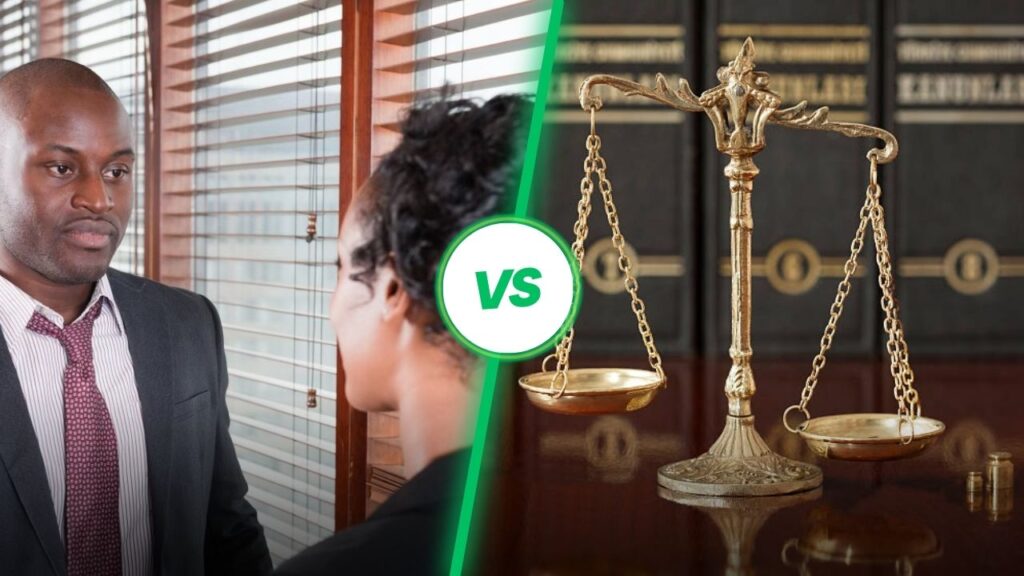Divorce and separation are challenging experiences, and the way these matters are resolved can significantly impact the lives of those involved. When couples decide to part ways, they typically face two primary paths for legal resolution: mediation and going to court. Understanding the differences between these two approaches is crucial for those navigating this emotional and complex journey.
What is Mediation in the Context of Divorce or Separation?
Mediation in divorce or separation involves a neutral third party, known as a mediator, who helps couples reach an agreement on various aspects of their split. This process is:
Voluntary and Collaborative: Both parties agree to participate and work towards a mutually beneficial solution.
Confidential: Discussions and agreements made in mediation are private.
Flexible: The process allows couples to create customized arrangements that suit their unique situation, covering aspects like parenting time, property division and equalization, and spousal support.
Legally Binding: The result of mediation is a Mediation Report or a Memorandum of Understanding which is used by your attorney to create a legally binding separation agreement.
Going to Court for Divorce or Separation
Divorce and separation are challenging experiences, and the way these matters are resolved can significantly impact the lives of those involved. When couples decide to part ways, they typically face two primary paths for legal resolution: mediation and going to court. Understanding the differences between these two approaches is crucial for those navigating this emotional and complex journey.
Key Differences in Divorce or Separation Context
1. Control Over Outcomes
Mediation
Couples maintain more control over the outcome, allowing for personalized solutions.

Court
A judge makes decisions based on legal principles, which may not align with either party’s preferences
2. Cost and Time Efficiency
Mediation
Generally, less expensive, and faster than court proceedings. It avoids the drawn-out process of trials and multiple court dates.

Court
Litigation can be costly and time-consuming, with the process sometimes stretching over months or even years.
3. Emotional Toll
Mediation
Often less adversarial and stressful, fostering dialogue and leading to amicable solutions, crucial when children are involved.

Court
The inherently adversarial nature of court proceedings often escalates conflict and amplifies emotional stress, making the process more contentious.
4. Privacy
Mediation
Offers a private setting where sensitive family matters remain confidential.

Court
Public nature means details of the family’s personal life become accessible in public records.
5. Finality and Flexibility
Mediation
Agreements can be more easily adjusted as family circumstances change.

Court
Court orders are final and modifying them usually requires returning to court.
Choosing the Right Path for Your Divorce or Separation
Deciding between mediation and going to court is a personal choice and depends on the dynamics of the relationship, the complexity of the marital assets, and the ability of the couple to work together. Mediation offers a path to resolve issues amicably and collaboratively, while court proceedings provide a more rigid path.
While both aim to resolve the difficult issues of divorce and separation, they offer different approaches and experiences. Understanding these differences is key to making the best choice for your situation.
It is important to remember that this blog post serves as a general guide and not as specific legal advice. In fact, obtaining Independent Legal Advice is a crucial aspect of the mediation process.









